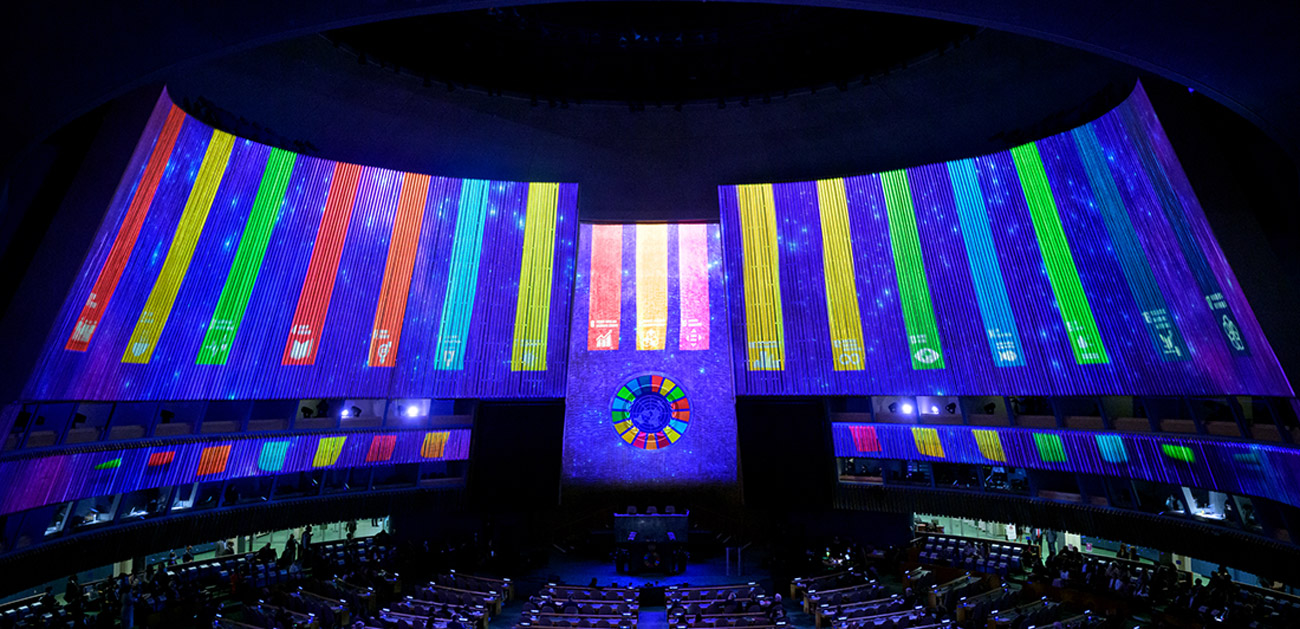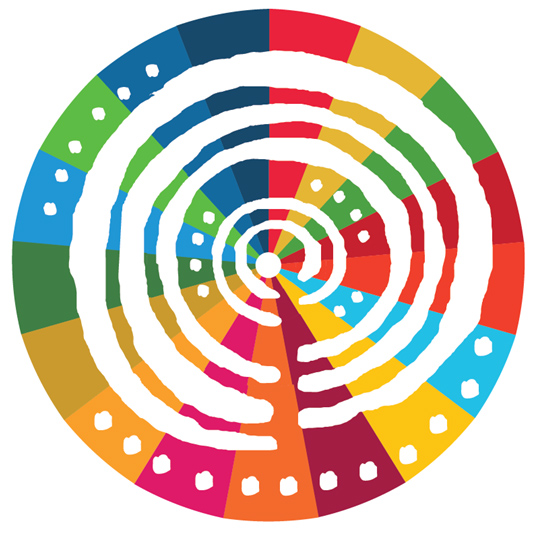The SDG Summit: countries united in New York for accelerated action for the Sustainable Development Goals
Work area(s)
With only 15 per cent of SDG targets being on track to be achieved by 2030 globally, there was a strong sense of urgency to deliver on the promise that was made in 2015 at the SDG Summit this year.

The SDG Summit 2023 took place on 18-19 September in New York as the centerpiece of the High-level Week of the General Assembly. It took stock of progress halfway on the implementation of the 2030 Agenda for Sustainable Development and its 17 Sustainable Development Goals (SDGs) and marked the half-way point to the deadline set for achieving the SDGs by 2030.
It’s the second time countries convened at the SDG Summit which complements the annual High-Level Political Forum on Sustainable Development (HLPF). The HLPF meets every year under the auspices of the Economic and Social Council, bringing high-level representatives of governments and diverse stakeholders together to review progress and obstacles to deliver on the 2030 Agenda for Sustainable Development and its 17 Sustainable Development Goals (SDGs). Every four years the HLPF meets under the auspices of the General Assembly at the level of Heads of State and Government in a so-called SDG Summit.
To reconfirm this commitment towards achieving the SDGs, the Summit adopted a political declaration that provides a roadmap for putting the world back on track to achieve the SDGs by their 2030 deadline. The declaration commits to bold, ambitious, accelerated, just and transformative actions and sets out concrete areas of action with a strong focus on the reform of the global financing architecture and the need for enhanced data for monitoring and tracking the SDGs. Heads of States and Governments committed to advancing the UNSG’s SDG Stimulus proposal, which has the potential to unlock USD 500 billion in additional financing and investment annually. They agreed that the necessary fiscal and policy space needs to be created to allow the most vulnerable countries to deliver on their SDG commitments, involving finance and treasury departments, foreign ministries, and other multilateral institutions, such as the World Bank and the International Monetary Fund (IMF). The declaration further looked at local, national, and international data systems and the role of the UN in identifying how data can be harnessed for tracking SDG progress, as well as strengthening analysis of SDG interlinkages, synergies, and trade-offs. The declaration also highlighted the Global Sustainable Development Report (GSDR) 2023, the localization of the 2030 Agenda, universal health care, the role of parliaments, the empowerment of women and youth and the fight against racism.
The SDG Summit featured six leaders’ dialogues to bring forward concrete national commitments to SDG transformation relating to: key transitions; leaving no one behind; science, technology, innovation, and data; strengthening integrated policies; strengthening the multilateral system; and finance. A total of 163 speakers took the floor during the Summit, including 57 heads of state/vice presidents, 30 heads of government, 58 deputy prime ministers and ministers, and 18 representatives of intergovernmental organizations, the United Nations system, civil society and other stakeholders.
A so-called SDG Action Weekend preceded the SDG Summit and served as a platform for stakeholder engagement to maximize the impact of the Summit. About 6,000 participants from UN Member States, civil society, youth, local and regional governments and the private sector convened at UNHQ. The event featured more than 40 side-events, including one organized by ECLAC, Argentina, Mexico, the International Federation of Libraries and the LAC Network of Youth for Sexual and Reproductive Rights, which discussed collaboration between different stakeholders as a strategy for accelerating action to achieve the SDGs.
Ahead of the SDG Summit, UN Secretary-General António Guterres urged world leaders to bring forward national and global commitments to drive SDG transformation. Following this call, the UN set up a SDG Acceleration and Accountability Platform, a tool to capture global commitments and actions to step up the ambition of the SDGs. So far, there are 32 national commitments registered, including six from the Latin American and Caribbean region, namely by Argentina, Belize, Chile, Costa Rica, Honduras and Panama. There are 78 acceleration actions registers by other stakeholders, for example a project to achieve gender equality in the workforce in Panama or a climate action project led by My World Mexico.
With so little time left to fulfill the vision of the 2030 Agenda, its achievement requires an unprecedented level of collective action. International cooperation and greater commitment from all relevant actors must be urgently scaled up to find lasting solutions. ECLAC's Community of Practice on Voluntary National Reviews (VNRs) for Latin American and Caribbean (LAC) countries as well as the upcoming seventh meeting of the Forum of the Countries of Latin America and the Caribbean on Sustainable Development to be held at the ECLAC’s Headquarters in Santiago de Chile between 15 and 19 April 2024 provide an opportunity to promote regional cooperation to accelerate progress towards the SDGs. Only together can we create an environment in which no one is left behind, and all people can fulfill their true potential, shaping a just and sustainable future for all.
